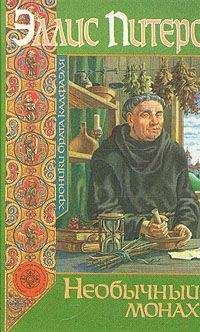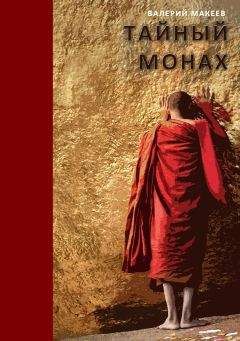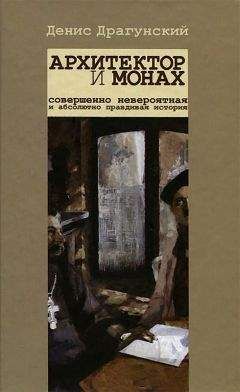Энтони Хоуп - Английский язык с Энтони Хоупом. Узник Зенды / Anthony Hope. The Prisoner Of Zenda
This was the lighter side of the fellow’s news (это был приятный момент в новостях, /которые принес/ этот парень); but more serious came behind, and it was plain that if time pressed at Tarlenheim (но было еще кое-что более серьезное: «но более серьезное шло позади», и стало очевидно, что если временем дорожили в Тарленхайме), it pressed none the less fiercely at Zenda (то ничуть не менее им дорожили и в Зенде: «не менее сильно оно давило в Зенде»; fiercely – свирепо, люто; сильно, яростно). For the King was very sick: Johann had seen him (потому что король был очень болен, Иоганн видел его), and he was wasted and hardly able to move (он был слаб и едва способен передвигаться; to waste – расточать, растрачивать; чахнуть, истощаться). “There could be no thought of taking another for him now (теперь не могло быть и речи: «мысли», чтобы принять другого за него).” So alarmed were they, that they had sent for a physician from Strelsau (они были так встревожены, что послали за врачом в Стрелсо); and the physician having been introduced into the King’s cell (и когда врача провели в камеру короля), had come forth pale and trembling, and urgently prayed the duke (/он/ вышел оттуда бледный и, /весь/ дрожа, тут же /принялся/ умолять герцога) to let him go back and meddle no more in the affair (позволить ему вернуться и не вмешиваться больше в это дело); but the duke would not, and held him there a prisoner (но герцог не позволил и удерживал его там как пленника), telling him his life was safe if the King lived while the duke desired (говоря ему, что его жизнь будет в безопасности, если король проживет /столько, сколько/ пожелает герцог) and died when the duke desired – not otherwise (и умрет, когда герцогу будет угодно – не иначе). And, persuaded by the physician, they had allowed Madame de Mauban to visit the King (и по настоянию врача госпоже де Мобан позволили навещать короля; to persuade – убеждать, уговаривать) and give him such attendance as his state needed (и ухаживать за ним так, как того требовало его состояние; attendance – присутствие; уход, обслуживание), and as only a woman can give (и как умеет ухаживать только женщина).
This was the lighter side of the fellow’s news; but more serious came behind, and it was plain that if time pressed at Tarlenheim, it pressed none the less fiercely at Zenda. For the King was very sick: Johann had seen him, and he was wasted and hardly able to move. “There could be no thought of taking another for him now.” So alarmed were they, that they had sent for a physician from Strelsau; and the physician having been introduced into the King’s cell, had come forth pale and trembling, and urgently prayed the duke to let him go back and meddle no more in the affair; but the duke would not, and held him there a prisoner, telling him his life was safe if the King lived while the duke desired and died when the duke desired – not otherwise. And, persuaded by the physician, they had allowed Madame de Mauban to visit the King and give him such attendance as his state needed, and as only a woman can give.
Yet his life hung in the balance (и все же его жизнь висела на волоске; to hang in the balance – быть в критическом положении, висеть на волоске); and I was still strong and whole and free (а я был полон сил, здоров и свободен; strong – сильный; whole – целый; здоровый). Wherefore great gloom reigned at Zenda; and save when they quarrelled (по этой причине в Зенде царило уныние; и если не считать /моментов/, когда они ссорились), to which they were very prone, they hardly spoke (к чему /эти люди/ были весьма склонны, они почти не разговаривали; prone – лежащий ничком, распростертый; склонный, предрасположенный /к чему-л./). But the deeper the depression of the rest (несмотря на то, что у остальных настроение становилось все более мрачным: «хотя /и/ усугублялась депрессия остальных»; deep – глубокий; сильный; depression – угнетенное состояние), young Rupert went about Satan’s work with a smile in his eye and a song on his lip (юный Руперт продолжал свое дьявольское дело с веселым взглядом: «с улыбкой во взгляде» и с песней на устах); and laughed “fit to burst” (said Johann) (и хохотал «до упаду» (как выразился Иоганн); to laugh fit to burst – лопаться от смеха) because the duke always set Detchard to guard the King (потому что герцог всегда оставлял Дэтчарда стеречь короля) when Madame de Mauban was in the cell (когда в его темнице находилась госпожа де Мобан) – which precaution was, indeed, not unwise in my careful brother (предусмотрительность, которая, действительно, не была излишней /со стороны/ моего осторожного братца; unwise – неумный, неразумный). Thus Johann told his tale and seized his crowns (таким образом, Иоганн рассказал нам все что знал: «свою историю» и получил свои кроны; to seize – хватать, схватить; завладевать). Yet he besought us to allow him to stay with us in Tarlenheim (все же, он умолял нас позволить ему остаться с нами в Тарленхайме; yet – еще, все еще; все же, все-таки, тем не менее; to beseech), and not venture his head again in the lion’s den (и не рисковать снова своей головой в логове льва); but we had need of him there, and, although I refused to constrain him (но нам он был нужен там, и, хоть я и отказался принуждать его), I prevailed on him by increased rewards to go back and carry tidings to Madame de Mauban (я убедил его, увеличив вознаграждение, вернуться и передать госпоже де Мобан; to carry – нести, носить; передавать сообщения, разносить новости; tidings – вести, известия) that I was working for her, and that, if she could (что я помню о ней: «работаю для нее», и что, если она сможет), she should speak one word of comfort to the King (пусть скажет слово утешения королю = пусть успокоит короля; comfort – утешение, поддержка; успокоение).
Yet his life hung in the balance; and I was still strong and whole and free. Wherefore great gloom reigned at Zenda; and save when they quarrelled, to which they were very prone, they hardly spoke. But the deeper the depression of the rest, young Rupert went about Satan’s work with a smile in his eye and a song on his lip; and laughed “fit to burst” (said Johann) because the duke always set Detchard to guard the King when Madame de Mauban was in the cell – which precaution was, indeed, not unwise in my careful brother. Thus Johann told his tale and seized his crowns. Yet he besought us to allow him to stay with us in Tarlenheim, and not venture his head again in the lion’s den; but we had need of him there, and, although I refused to constrain him, I prevailed on him by increased rewards to go back and carry tidings to Madame de Mauban that I was working for her, and that, if she could, she should speak one word of comfort to the King.
For while suspense is bad for the sick, yet despair is worse still (потому что, если неизвестность плохо /действует/ на больного, отчаяние, все же, еще хуже), and it might be that the King lay dying of mere hopelessness (и могло быть так, что король лежит, умирая просто от безнадежности; to lie), for I could learn of no definite disease that afflicted him (ибо я не смог узнать ни о какой определенной болезни = мне не могли назвать конкретную болезнь, которая поразила его).
“And how do they guard the King now (а как же они теперь стерегут короля)?” I asked, remembering that two of the Six were dead, and Max Holf also (спросил я, вспомнив, что двое из Шестерых мертвы, и Макс Хольф тоже).
“Detchard and Bersonin watch by night, Rupert Hentzau and De Gautet by day, sir,” he answered (Дэтчард и Берзонин дежурят по ночам, Руперт Хенцо и Де Готе – днем, сэр).
“Only two at a time (только по двое)?”
“Ay, sir; but the others rest in a room just above (да, сэр; но остальные отдыхают в комнате наверху), and are within sound of a cry or a whistle (и /в случае чего/ услышат крик или свист; to be within sound – находиться в пределах слышимости).”
“A room just above (комната наверху)? I didn’t know of that (я не знал об этом). Is there any communication between it and the room where they watch (есть какое-то сообщение между ней и комнатой, где они дежурят)?”
“No, sir. You must go down a few stairs and through the door by the drawbridge (нет, сэр, нужно спуститься на несколько ступенек и пройти в дверь рядом с подъемным мостом), and so to where the King is lodged (и таким образом попадете туда, где держат короля; to lodge – /временно/ поселить, предоставить помещение).”
For while suspense is bad for the sick, yet despair is worse still, and it might be that the King lay dying of mere hopelessness, for I could learn of no definite disease that afflicted him.
“And how do they guard the King now?” I asked, remembering that two of the Six were dead, and Max Holf also.
“Detchard and Bersonin watch by night, Rupert Hentzau and De Gautet by day, sir,” he answered.
“Only two at a time?”
“Ay, sir; but the others rest in a room just above, and are within sound of a cry or a whistle.”
“A room just above? I didn’t know of that. Is there any communication between it and the room where they watch?”
“No, sir. You must go down a few stairs and through the door by the drawbridge, and so to where the King is lodged.”
“And that door is locked (а эту дверь запирают)?”
“Only the four lords have keys, sir (только у тех четверых господ есть ключи, сэр).”
I drew nearer to him (я придвинулся ближе к нему).
“And have they keys of the grating?” I asked in a low whisper (а есть у них ключи от решетки? – спросил я тихим шепотом).
“I think, sir, only Detchard and Rupert (думаю, сэр, только у Дэтчарда и Руперта).”
“Where does the duke lodge (а где располагается герцог; to lodge – поселить, предоставить помещение; временно проживать)?”
“In the château, on the first floor (во дворце на втором этаже; first floor – второй этаж /нумерация этажей в Великобритании начинается со второго/). His apartments are on the right as you go towards the drawbridge (его комнаты расположены по правую /руку/, когда вы идете к подъемному мосту).”
“And Madame de Mauban (а госпожа де Мобан)?”
“Just opposite, on the left (как раз напротив, слева). But her door is locked after she has entered (но дверь в ее /комнату/ закрывают после того, как она войдет).”
“To keep her in (чтобы она никуда не выходила: «чтобы держать ее внутри»)?”
“Doubtless, sir (вероятно, сэр; doubtless – несомненно; /разг./ вероятно; doubt – сомнение).”
“Perhaps for another reason (может, по другой причине)?”
“It is possible (возможно).”
“And the duke, I suppose, has the key (а у герцога, я полагаю, есть ключ)?”
“Yes. And the drawbridge is drawn back at night (да; и мост на ночь поднимают; to draw back – отодвигать, отводить назад), and of that, too, the duke holds the key (и ключ от него тоже у герцога; to hold – держать; владеть, быть владельцем), so that it cannot be run across the moat without application to him (чтобы невозможно было перейти через ров, не обратившись к нему; application – заявление, прошение; просьба, обращение).”




